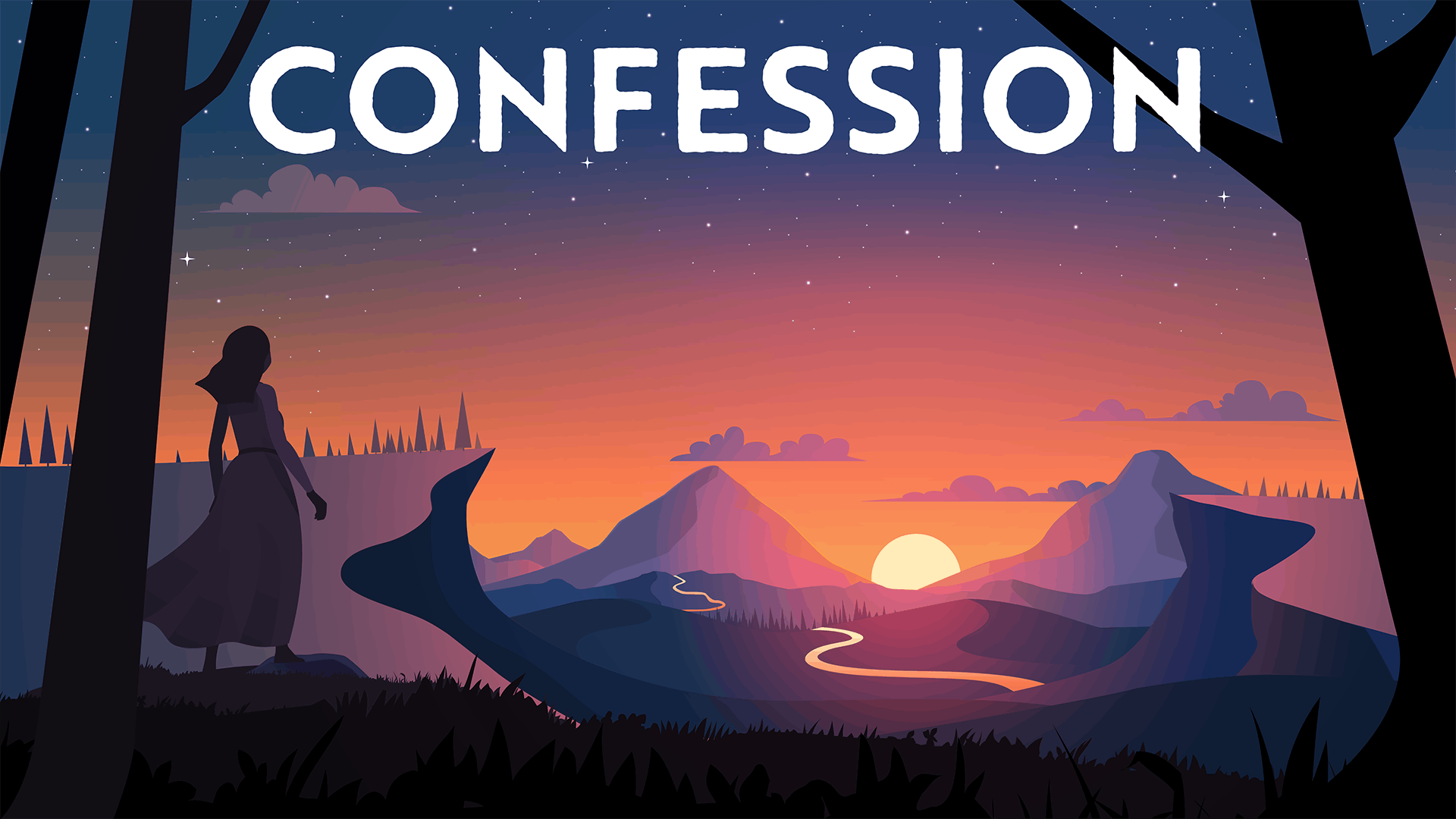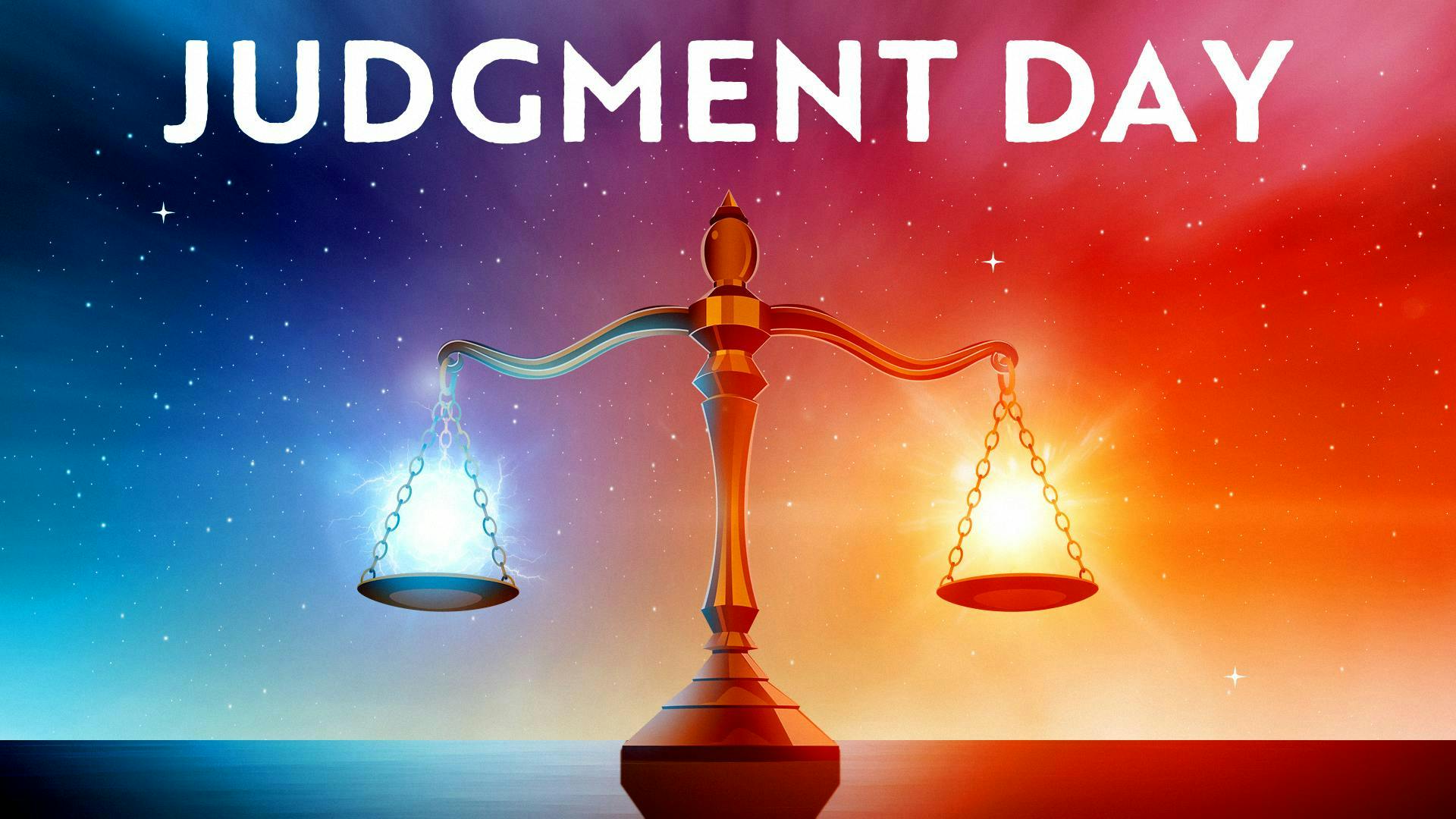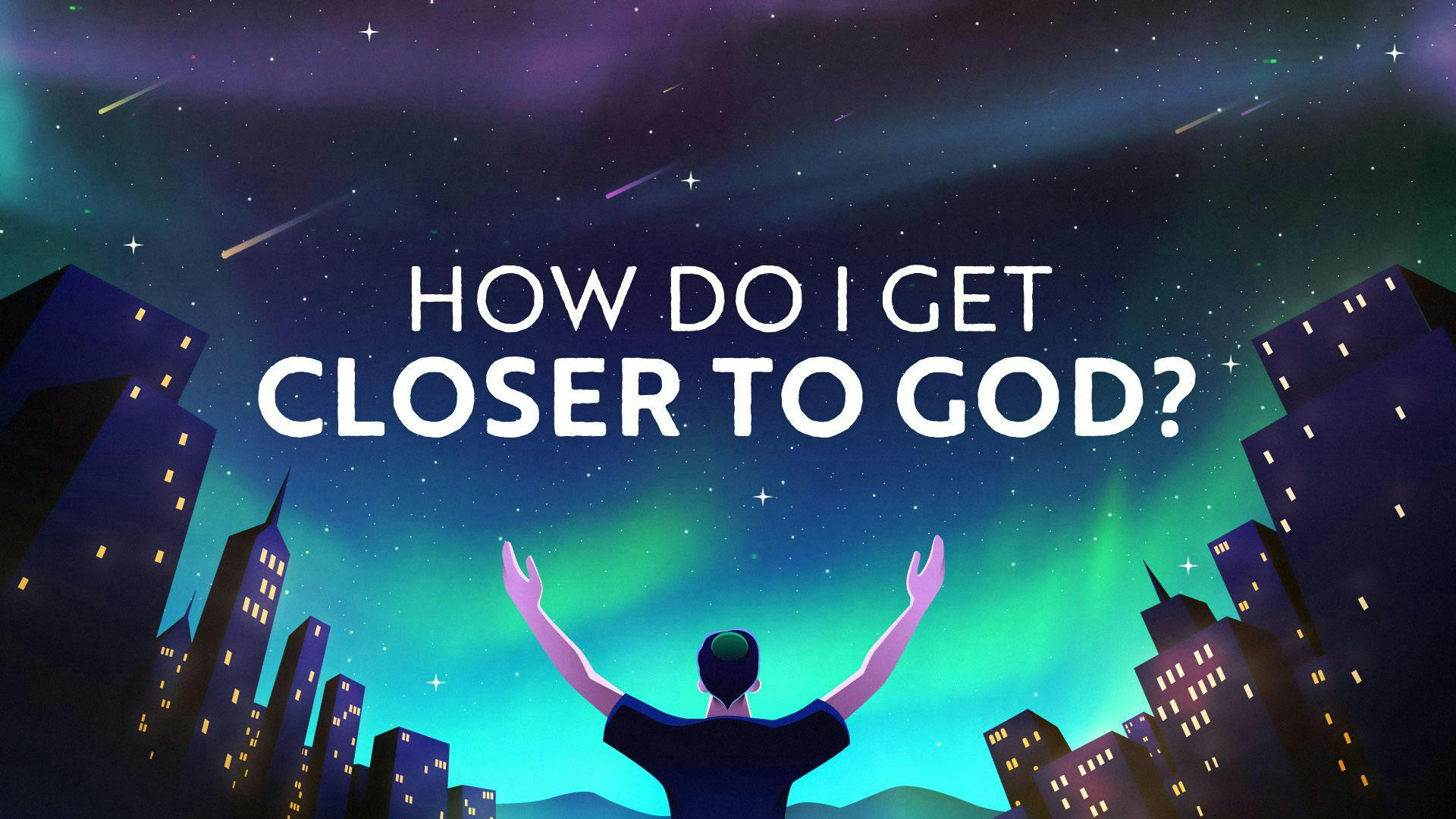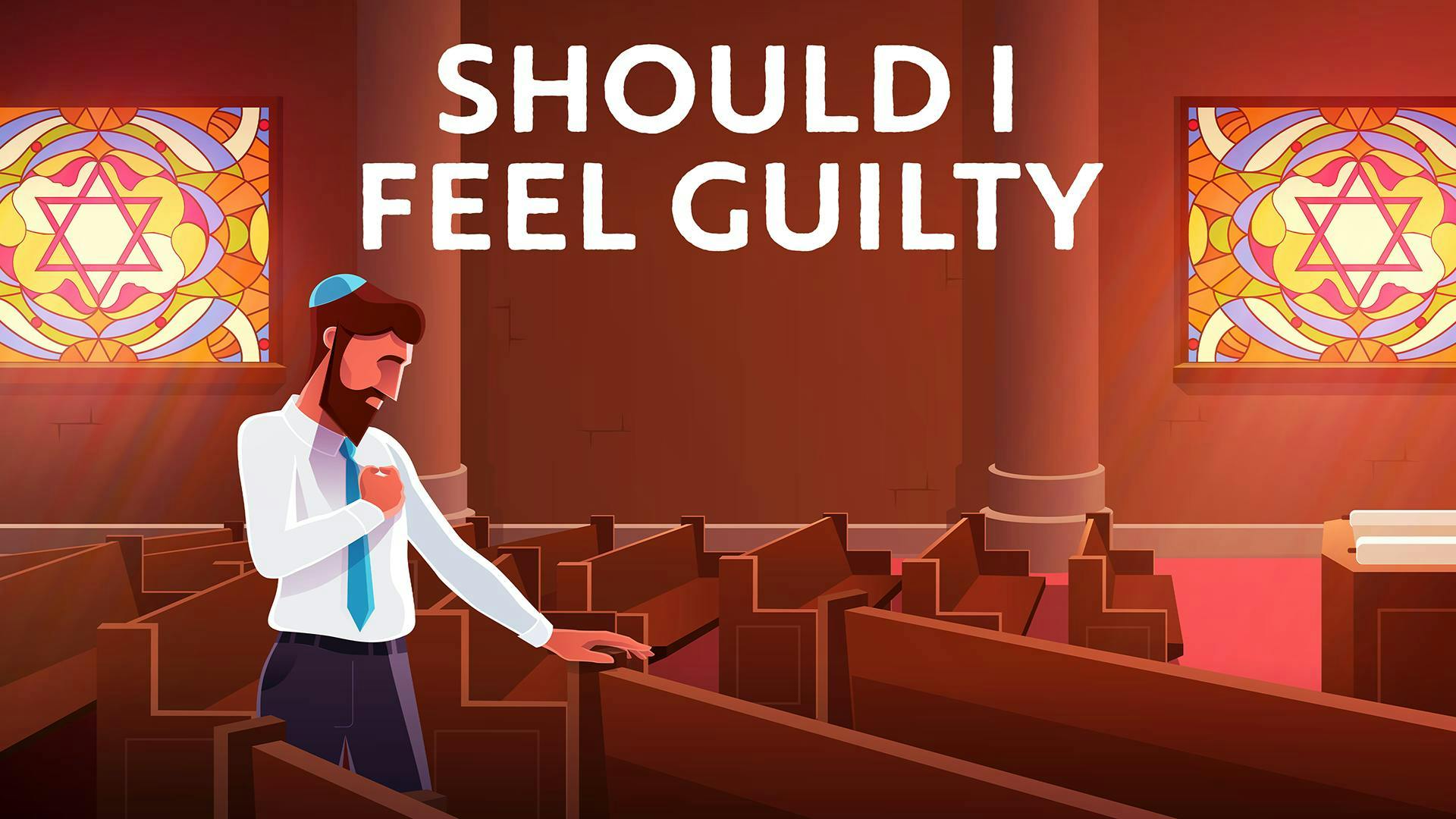Passover 101: What is Passover?
Passover Characters, Meaning & More
By Sarah Rashba | 3 March 2025 | 5 Minute Read
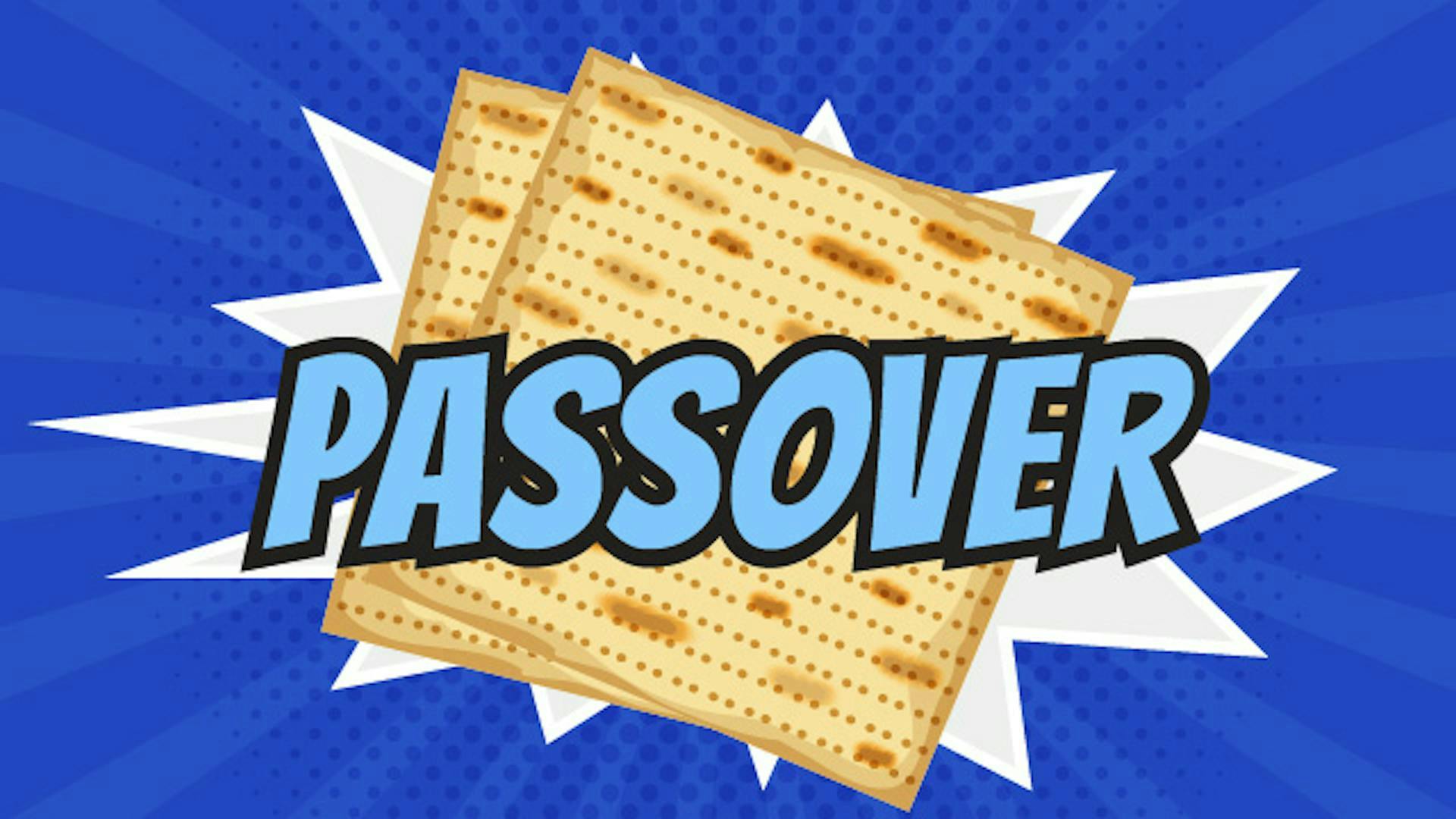
What is Passover?
The Passover holiday, also known as Pesach, commemorates the Jewish Exodus from Egypt. Passover is celebrated in the springtime, and is often called Chag haAviv, or “The Spring Holiday,” in Hebrew. On the Hebrew calendar, the holiday of Passover begins on the evening of 15th of Nissan, usually late March or April on the Gregorian calendar.
Passover, together with Shavuot and Sukkot, is one of the three pilgrimage festivals, where the entire population of Israel would journey to the Temple in Jerusalem. As such, it is one of the most significant holidays on the Jewish calendar, and is marked by special prayers and readings for the entire Passover festival. Prepare for the holiday with our collection of mind-blowing Passover video courses, or check out our Haggadah course to prepare for the Passover seder.
Passover 2025
In Israel, Passover lasts for seven days, as designated in the Torah. One Seder is held on the first night of Passover. In the diaspora, Passover holiday is eight days long and the Seder service is held on the first two nights of the holiday. Jews around the use a text called the Haggadah to conduct the Seder. Get a free printable guide on how to read the Haggadah at Seder or check out our video course.
When is Passover this year? Passover begins before sundown on Saturday, 12 April 2025 and ends at nightfall on Sunday, 20 April 2025.
What Does Passover Mean?
Pesach celebrates one of the most important events in Jewish history – God’s redemption of the Jewish people from their enslavement in Egypt. But the Passover holiday also commemorates the entire process of the redemption, from the earliest days of Egyptian slavery to the epic 10 plagues that God brought upon the Egyptians as punishment.
In fact, the name of the holiday is derived from one of the very last events in the Passover story. During the tenth plague, the Death of the First Born, God is said to have “passed over” the houses of the Jews, sparing them from the death and tragedy. In Hebrew, the word used is “Pesach,” and it is this action that we specifically recall in the name of the Passover holiday. Rabbi Fohrmam's introspective videos dive deeper behind the meaning of Passover, and what it means to become God's chosen on Pesach.
Is Passover a Happy Holiday?
Today, the Pesach holiday is both a joyful celebration of freedom, and a somber commemoration of Jewish slavery and suffering. The Seder service praises God for redeeming the Jewish nation from Egypt, but also emphasizes our continued state of diaspora and exile. Tellingly, the Seder concludes with the joyous declaration “Next year in Jerusalem!” a note of hope that Final Redemption will soon reunite all Jews together in Israel.
Passover Rituals & Customs
The intense preparation required for Pesach is part of what makes the holiday famous – and somewhat infamous. Jews who observe the Passover holiday must remove all traces of leavened bread, or “chametz,” from their homes and properties, which often requires intense cleaning in the days and weeks before the first night of Passover.
Several rituals are also observed before the Passover holiday to ensure that no chametz is present by the time Pesach begins. On the night before Passover, Jews perform a symbolic “bedikah,” searching their homes for leftover bread. The next day, they burn all remaining chametz, declaring any undiscovered crumbs ownerless and void. Alternatively, people can also sell their chametz and buy it back after the holiday.
What is Matzah?
Matzah is the cracker-like unleavened bread that Jews eat during the holiday of Pesach. Matzah is an important part of the Exodus story. When the Israelites were leaving Egypt, they left in such haste that their dough did not have time to rise. It baked in the sun as they left, creating the classic flat matzo. On Passover, Jews who observe Pesach replace all bread products with matzo and don’t eat anything containing chametz.
When Do You Start Counting the Omer?
According to Leviticus 23:15, we are obligated to count the days from Passover to Shavuot. This period is referred to as Sefirat HaOmer or the Counting of the Omer. The first night of the Omer is counted on the second night of Passover. In the days of the Temple, an omer (or unit) of barley was brought as an offering on this day.
The Passover Greeting
The traditional greeting for most Jewish holidays is a simple “Chag Sameach” (pronounced ch-ah-g sa-may-ach), meaning “Happy holiday.” For the Pesach greeting, many add “Chag Kasher v’Sameach,” which means “A kosher and happy holiday.”
The Passover Story: Looking Back at the History of Passover
The History Behind Passover – Going Down to Egypt
Although the Passover holiday is introduced in the book of Exodus, the story actually begins several generations earlier. Late in the book of Genesis, Joseph’s brothers sell him down to Egypt as a slave. While there, he rises to be Pharaoh’s top advisor. When a famine s-trikes the land of Canaan, Joseph’s brothers come to Egypt looking for food, leading to the family’s dramatic reunion. The book of Genesis ends with Jacob’s entire family settling in Egypt.
The book of Exodus begins by listing all the people who came to Egypt with Jacob; 400 years later, the family has grown and become known as the people of “Israel,” which is Jacob’s other name (Genesis 35:10). But now they are brutally enslaved by a new Pharaoh who, fearing the rapid growth of this new nation, orders that all baby boys be thrown into the Nile river.
The Passover Plot Thickens
One woman, Jocheved, defies this order and puts her newborn into the river in a woven basket. Pharaoh’s daughter finds the baby as he drifts down the Nile and decides to raise him as her own. This baby boy grows up to be Moses, the savior of the Israelites.
Moses grows up as an Egyptian prince, but becomes aware of the brutal treatment of the Israelites. One day he sees an Egyptian beating an Israelite and kills the Egyptian slavemaster. Afraid of Pharaoh’s reaction, Moses flees to Midian, where he meets the priest Jethro, priest of Midian, and marries Jethro’s daughter, Zipporah.
It is also in Midian where God first reveals Himself to Moses. Moses has a miraculous encounter with God in front of a burning bush that, despite the inferno, is not consumed by the fire. In this moment, God appoints Moses as the man He will use to deliver the Israelites, giving Moses three signs as proof to the Jews and Egyptians that he is really God’s messenger. Rabbi Fohrman's course offers a new perspective to God's miracles performed by Moses, arguing they are a basis of deeper story of God's compassion – offered to both the Israelites and the Egyptians.
Moses, along with his brother Aaron, tells all of this to Pharaoh, but Pharaoh rejects the overture. He says that he doesn’t know this God, and forces the Israelites to work even harder.
The Plagues – and the First Passover
God sends ten plagues against the Egyptians as Pharaoh continues to deny the Israelites freedom. These plagues are intended to persuade Pharaoh to free the Jews, as well as meting out Divine justice – measure for measure – against the Egyptians for their treatment of the Israelites.
The plagues climax with the tenth plague: the killing of the firstborn Egyptian sons. This plague is a punishment for Pharaoh ordering the Israelite’s sons to be killed. God tells the Israelites that they will be spared from this plague if they take blood from a slaughtered lamb and paint it over their doorposts. The Jews follow this command, observing the first Passover night and the important korban Pesach sacrifice. In this course, Rabbi Fohrman argues the importance of this act as a turning point in becoming God's chosen people.
After this plague, Pharaoh is so angry with the Israelites that he finally sends them out of Egypt. But as the Israelites are leaving, Pharaoh has a sudden change of heart and orders his chariots and horsemen to chase after them. In the Israelites’ haste to escape, their bread does not have time to rise; instead of fluffy loaves, they are left with Matzo.
Redemption: An End to the Passover
As the Israelites flee from Pharaoh, they are faced with the Sea of Reeds. Moses places his staff into the sea and the sea splits. The Israelites pass through unharmed, while the pursuing Egyptians drown.
Led by Moses’s older sister Miriam, the Israelites sing a song of joy and gratitude to God as they cross safely to the Desert. It is here that the Passover story ends, and the Israelites’s 40-year journey in the Desert begins.
Four Passover Characters
1. Moses: The Making of a Leader
Moses is the leader of the Israelites throughout the Passover story. He is the greatest prophet in the Bible, often speaking directly with God. Moses is the son of Amram and Jochebed, and the youngest brother of Miriam and Aaron, all of whom are all descendants of Jacob’s son Levi.
Moses grew up as an Egyptian prince, raised by Pharaoh’s daughter after Jocheved placed him into the Nile river in a woven basket, saving him from Pharaoh’s decree. However, it is only when Moses becomes an adult and flees to Midian that God reveals Himself to Moses, and anoints him the leader of the Israelites. Moses is said to have some sort of speech impediment, as he initially resists being God’s messenger, saying, “I have never been a man of words… I am heavy of mouth and heavy of tongue” (Exodus 4:10). Because of this, Aaron acts as his spokesman with Pharaoh and the Jewish nation.
Later on, Moses is not able to enter the land of Israel with the rest of the nation. Rabbi Fohrman explains why not in this video.
2. Aaron: The Spokesman
Aaron is Moses’s older brother who, unlike his brother, grew up amongst his people as a Levite in Goshen. When the two brothers first confronted Pharaoh, Aaron served as Moses’s spokesman. Aaron also performed some of the plagues on behalf of God and Moses. Later on, the Torah that Moses receives at Sinai grants the priesthood to Aaron and his descendants, making Aaron the first High Priest. Aaron is married to Elisheba.
3. Pharaoh: Enslaver of the Israelites
Pharaoh is the King of Egypt who enslaved the Israelites in the Book of Exodus. Historians and scholars of the Bible disagree about which historical pharaoh was the one in the Exodus story. Either way, Pharaoh is a cruel and brutal leader, enslaving the Israelites out of fear that they would grow too large and threaten his rule. His daughter, identified as Bithiah or Batya mentioned in Chronicles, rescues Moses from the Nile and raises him as her own son.
4. Miriam: A Sister's Care
Miriam is the eldest child of Amram and Jochebed, and older sister to both Aaron and Moses. After her mother sent baby Moses down the Nile river, Miriam watched over him and observed as Pharaoh’s daughter found the baby. Miriam suggests to Pharaoh’s daughter that she take on a nurse for the child. In this way, Jochebed becomes the nurse for her son and Moses is raised with a familiarity of his background and Hebrew language.
Miriam was also a prophetess who sang a song of victory after the Israelites safely crossed the Red Sea.
A Book for Passover: Answering the Bigger Questions
Even once we grasp the concepts of what Passover is about, it still feels like so many questions go unanswered. Why isn't Passover called Freedom or Independence Day? Doesn’t it seem strange that the word “Passover” only focuses on one plague? Why bother with ten plagues at all? Then there are uncomfortable parts to face in the Exodus: Why didn't an almightly God spare the Israelites from slavery in the first place? And then, God hardened Pharaoh’s heart – doesn't that seem counteractive? Why drag the Israelites through a complicated Exodus plot, when an All-Powerful deity could have easily teleported the Israelites out of Egypt?
Rabbi Fohrman's book aims to uncover the secrets that lay hidden in this ancient and sacred story. It reveals a new side to the Exodus story, one that you almost passed over – a tale that illuminates not just our past and our freedom, but our future and destiny, that we are still living today. Take a free peek at Chapter 1.

Looking for more?
We have hours of delightful videos and podcasts to enhance your Yamim Noraim experience.
The Passover Seder in 2025
Each year we listen to divrei Torah on Passover, a familiar part of the Seder service. But how often do we ask the big questions? Why doesn't the actual Exodus story start until you’re deep into the Haggadah? Why have all those other sections at the start of the Seder; the four questions, the four sons, and the story of Rabbi Elazar Ben Azaria? How are these related to our commandment to retell the story of the Exodus on Pesach? And why do we thank God for taking us out of Egypt, if He’s the one who allowed the Israelites to become enslaved in the first place?
Our downloadable Passover Seder Guide explores these questions and more. Transform your Passover Seder in 2024 here! Check out our other Passover videos, including Dayeinu: Would It Really Have Been Enough, The Fast of The Firstborn, The Miracles God Showed Moses and Understanding the Main Themes of Passover.

Passover Videos
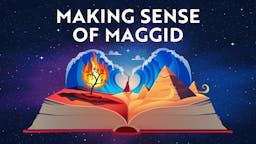
Your Roadmap Through the Haggadah: Making Sense of Maggid
Video series • Part 1 of 5 • 14 min
Our main job at the Seder is to tell the story of the Exodus—but the Haggadah, the very guide meant to help us, can often feel surprisingly confusing. Discover why we read this text and transform maggid from that part you rush through to get to the food into the most insightful highlight of the evening.
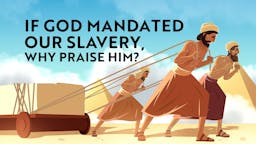
If God Mandated Our Slavery, Why Praise Him for Our Freedom?
Video series • Part 1 of 5 • 8 min
The seder is full of songs praising God for taking us out of Egypt – but He decreed to Abraham that we’d be slaves in Egypt centuries beforehand in the Brit Ben Habetarim. So did He save us or put us into slavery in the first place?
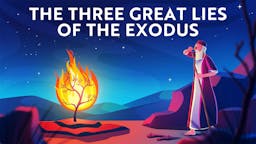
The Miracles Performed By Moses In Egypt
Video series • Part 1 of 7 • 10 min
At the burning bush, God gave Moses three signs to show the People of Israel that He is in fact with them. Was there any significance to these 3 signs, or did God randomly select three signs? Also, were the signs even effective? Join Rabbi Fohrman as he takes a closer look at these three signs from God.
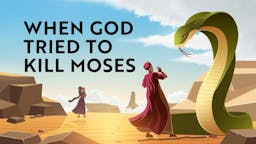
That Bizarre Moment When God Tried to Kill Moses
Video series • Part 1 of 6 • 14 min
Remember when God inexplicably tried to kill Moses and Tzipporah had to save him? This isn't a midrash —it's right there in the text. Why would God threaten the very messenger He just selected? Discover the hidden connection between this bizarre episode and the deeper meaning of the entire Exodus story.
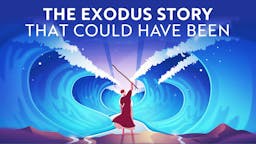
The Exodus Story That Could Have Been
Video series • Part 1 of 5 • 13 min
The Exodus story ends in carnage for the Egyptians, and in glorious salvation for the Israelites – but could this story have ended differently? Could the Egyptians also have lived happily ever after? Rabbi Fohrman thinks we can find the answer by noticing some uncanny resemblances to another biblical story. Join us as we explore a new way of reading the Exodus story.
What is Aleph Beta?
Aleph Beta is a unique kind of Torah library. Led by our founder, Rabbi David Fohrman, we are dedicated to high-level, textual Torah learning for adults that is intellectually and spiritually sophisticated, that enlivens your Jewish practice and helps you forge a deeper connection to God. Whether you’ve been learning in yeshiva for years or you’re just beginning your Torah journey, you’re sure to find something meaningful and surprising waiting for you here.
Browse our library of over 1,000 beautifully produced animated videos, podcasts, deep dive courses, and printable guides. Topics include the weekly parsha, Jewish holidays & fast days, laws & mitzvot, prayers, relationships, big philosophical ideas and more. Have something to say at the Shabbos table that will amaze your family and guests and bring deep meaning into their lives.
